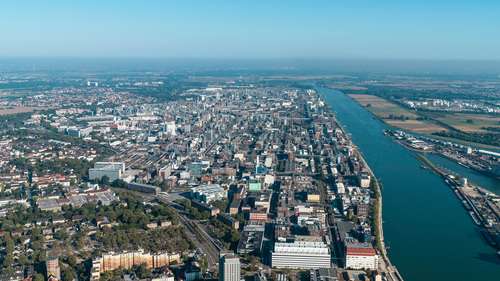Vulcan to commence seismic surveys on geothermal heat project with BASF
Vulcan Energy is pleased to announce it has received the approvals to commence seismic surveys for its geothermal heat development project in the Ludwigshafen region of Germany, which the Company is undertaking in partnership with the world’s largest chemicals producer, BASF SE (BASF).
This follows the signing of the agreement with BASF in November 2024 to collaborate on a renewable development to supply BASF’s Verbund site Ludwigshafen with baseload heat. The BASF agreement also includes the potential construction of a commercial Lithium Extraction Plant in Ludwigshafen, BASF’s headquarters and home to the largest integrated chemical complex globally.
Highlights
- The official approvals have now been obtained for the first stage of development, with two dimensional (2D) seismic survey measurements to be carried out from late February to early March
- The survey will be conducted on approximately 75 kilometresof roadway withinVorderpfalz, a region on the western border of Germany’s Upper Rhine ValleyBrine Field(URVBF), including the towns and municipalities of Bad Dürkheim, Deidesheim, Mutterstadt, Frankenthal and Ludwigshafen
- The results of the 2D seismic survey will determine optimal location/s for the next stage of development and will be followed by a 3D seismic survey. The Company will be responsible for coordinating the planning of the 2D and 3D seismic surveys, the results of which will be used to plan locations for geothermal and lithium production/re-injection wells
- The development aims to utilise geothermal energy from the URVBF to provide renewable heat for BASF’s main plant
- In addition, the development aims to provide a sustainable district heating supply for the Ludwigshafen and Frankenthal areas, with the Company also planning to utilise the extracted heated brine to produce sustainable lithium
- The Company will seek to replicate the development model across the URVBF in future phases, building affordable renewable heating production to contribute to the decarbonisationof European industry and the public heating sector. The same brine from the same deep geothermal wells can also then be utilised to produce lithium for lithium-ion batteries.
Vulcan’s Managing Director and CEO, Cris Moreno, commented: “Securingthe necessary approvals for the first stage of developmentis an important step in further advancing our geothermal heat and lithiumprojectin the Ludwigshafen area.Together with BASF, we will be utilising geothermal energy in sucha way that ensures the area has access to a sustainable, climate-neutral energy source.
“Critically, this development reflects our broader integrated business approach, whereby we will seek to replicate this model across the URVBF through strategic partnerships with large, industrial companies like BASF. This approach not only drives sustainable energy supply in the regions but heavily contributes to Europe’s transition to green electromobility.”
BASF Senior Vice President -Infrastructure at Ludwigshafen, Tilmann Hezel, said: “This project represents one of the most important transformation projects on our site, which will potentially cover a significant proportion of our future energy requirements without the use of fossil fuels.”
Categories
Investments
2025-03-01
at BASF SE, Ludwigshafen (DE)Countries
Companies
Latest news
Hycamite’s technology to decarbonize shipping awarded AiP by industry leader DNV
Kokkola Industrial Park →Hycamite’s proprietary Thermo-Catalytic Decomposition (TCD) technology offers a new approach to producing clean hydrogen by breaking down methane, the primary component of liquefied natural gas (LN...
Clariant catalysts will power the Ecoplanta: Europe's first waste-to-methanol plant
Chemmed Cluster Tarragona →Repsol is building Europe’s first plant to produce renewable methanol from urban waste The facility will use Enerkem gasification technology to produce 240 KTA of methanol Clariant will supply cata...
Lilly plans to build a new $3 billion facility to boost oral medicine manufacturing capacity in Europe for patients worldwide
Netherlands site will bring 500 manufacturing and 1,500 construction jobs while further strengthening Lilly's global supply chain
Ports of Duisburg and Rotterdam advance energy transition together
Port of Rotterdam →With this LoI, the two major European logistics hubs reinforce their goal of jointly developing sustainable transport corridors via waterways as well as future-oriented initiatives for the energy t...



